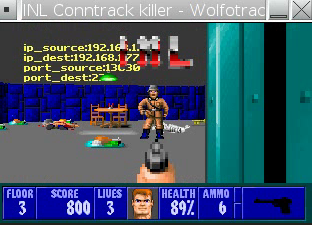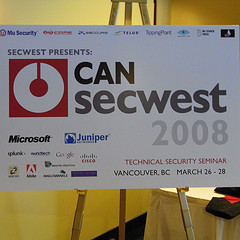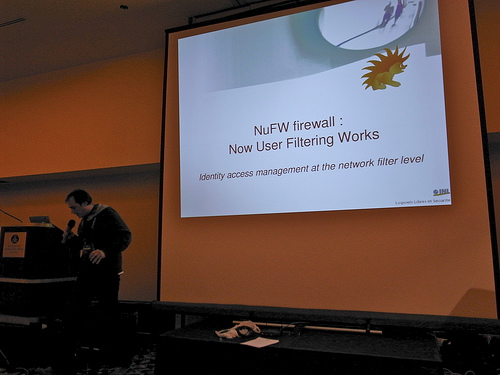The code for nfqueue-bindings is now almost ready, I have made some progress since last week:
- you can now modify packets in live, and send the new packet with the verdict
- new functions are wrapped, and the creation of the queue can be done in one function
- more examples
I have presented a special script for SSTIC, using the weather to decide if a packet should be accepted or dropped :)While the utility of the module still has to be proven, it is a good example of how easy it is to use the new bindings.
The slides can be found online here, and contains some code examples (with some funny things ;). They are in french, but they should be quite easy to understand.
Random ideas:
- The Netfilter workshop will be held in Paris from 30 September to 3 October 2008.
- Eric has presented nf3d, a nice tool to view netfilter logs (from ulogd2) in 3D.
Gamers will recognize a nice try to convert network logs into Guitar Hero tracks ;)
- Some people have weird habits at SSTIC !





